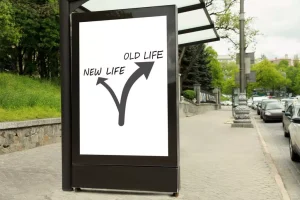
Possible short-term problems relating to intoxication include blurry vision, changes in color perception, and light sensitivity. A person may reduce their risk of developing vision issues due to alcohol by limiting their alcohol consumption. Even small changes can help reduce a person’s risk of developing issues with their eyes or other aspects of health. A doctor can provide more details about what a person can do to address their vision issues.
Can drinking alcohol make dry eyes worse?
While cataracts are primarily age-related, excessive alcohol intake can increase someone’s risk of experiencing cataract symptoms before the age of 40. Symptoms of cataracts include cloudy or blurry vision, increased light sensitivity, trouble seeing at night, and decreased color perception. Chronic alcohol abuse can lead to long-term damage in the body, including liver cirrhosis, memory loss, cancer, and vision problems. Individuals who engage in alcohol or tobacco abuse are at an increased risk of optic neuropathy due to nutritional deficiencies and genetics. Optic neuropathy can lead to permanent vision loss or scotoma (blind spot in vision).
- For example, if you notice the whites of the eyes are turning yellow, this is actually not an eye condition.
- In this review, the concept of heavy drinking will be clarified through both quantitative and qualitative descriptions of daily alcohol consumption based on moderate or heavy alcohol abuse.
- A delayed communication between the brain and the eyes causes the muscles in the eyes to weaken and lose coordination.
- While an occasional drink may not lead to serious eye health issues, excessive and chronic alcohol consumption poses a significant risk.
Other Retinal Conditions

Alcohol consumption can temporarily impair visual performance, resulting in double or blurred vision. As a diuretic, alcohol use dehydrates the body, leading to itchy, dry, and bloodshot eyes. Acute alcohol intoxication can also slow pupil reactions to changes in light, which can hinder someone’s vision in bright or dim environments. It can also impair color perception and peripheral vision, decrease contrast sensitivity, and cause abnormal or rapid eye movements. Alcohol’s short-term effects on eyesight can lead to potentially harmful situations, including accidents and injuries. Higher alcohol intake can result in slower communication between the brain and the optic nerves, further impacting vision quality.

What to know about the effects of alcohol on the eyes
This can result in increased sensitivity to light and difficulties adjusting from dark to bright environments. Eyelid twitching is another indicator of (excessive) alcohol consumption. If you find your eyelids twitch on a regular basis, it may be because of stress, lack of sleep, too much caffeine or a vitamin deficiency.
- In addition to the short-term and temporary effects of alcohol, consuming heavy amounts of alcohol can lead to irreversible eye problems over time.
- The more alcohol the subjects drank, the worse their vision became under low-light conditions.
- An ardent squash player, Mohan believes in the importance of fitness and wellness.
- In fact, dry eyes is a common complaint among drinkers, and chronic alcohol abuse can lead to the development of dry eye syndrome.
- American Addiction Centers (AAC) is committed to delivering original, truthful, accurate, unbiased, and medically current information.
- The eye muscles may struggle to react quickly enough, causing difficulty maintaining a clear focus on objects.
Alcohol intoxication impairs gamma-aminobutyric acid (GABA) activity in the brain, which may result in visual impairments. Other neurological functions affected by severe intoxication can also cause individuals to experience difficulties focusing and seeing clearly. Alcohol is a diuretic, which leads to dehydration in the body, including the eyes. Dehydration reduces the production of tears that keep the eyes lubricated, leading to dry eyes. Dry eyes from alcohol abuse can cause light sensitivity, irritation, burning, and a gritty sensation in the eyes.

How Does Alcohol Affect Vision and Eyesight?
Blurred or double vision from alcohol intoxication alongside impaired judgment is one of the significant concerns of driving while under the influence. Not only is it illegal to drive with alcohol in your system, it is perilous and can lead to severe traffic hazards, car accidents, and death. Alcohol may still be one of the top substances of use in the nation, but rehab blurry vision after drinking alcohol centers are making strides in helping people overcome alcohol addiction. This process can be severe and should always be completed under medical supervision. Our rehab centers can provide the quality, experienced medical support you need to make it through detox. On the other hand, chronic and heavy alcohol use can contribute to a long-term increase in eye pressure.
However, when the body is dehydrated due to alcohol consumption, it struggles to produce enough tears. This lack of sufficient lubrication leads to the condition known as dry eyes. Alcohol, in both short-term and long-term consumption, can indeed affect your vision. While the occasional drink may not lead to lasting damage, frequent and excessive alcohol use can cause significant and sometimes irreversible effects on visual health.